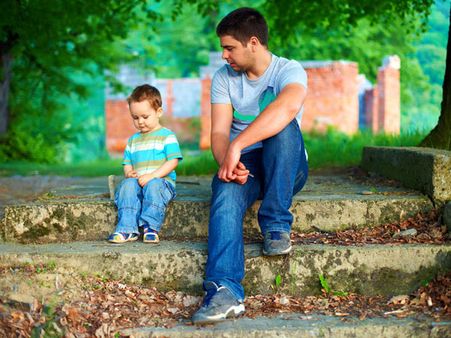Just In
- 49 min ago

- 1 hr ago

- 10 hrs ago

- 11 hrs ago

Don't Miss
- Sports
 Jos Buttler's Match-Winning Century Propels Him to Second Place for Most Centuries in IPL During KKR vs RR Encounter
Jos Buttler's Match-Winning Century Propels Him to Second Place for Most Centuries in IPL During KKR vs RR Encounter - Finance
 Rs 7/Share Dividend: May 3 Fixed As Record Date; Buy The Large Cap Stock To Be Eligible?
Rs 7/Share Dividend: May 3 Fixed As Record Date; Buy The Large Cap Stock To Be Eligible? - Movies
 Bade Miyan Chote Miyan Vs Maidaan Box Office Collection Day 6
Bade Miyan Chote Miyan Vs Maidaan Box Office Collection Day 6 - News
 UAE Weather Report: Floods Hit Dubai, 18 Dead; Govt. Shuts Schools, Colleges
UAE Weather Report: Floods Hit Dubai, 18 Dead; Govt. Shuts Schools, Colleges - Education
 UPSC Success Story: An IITian, A Government Job Holder at Railways, Quit the Job and Emerged as an IAS
UPSC Success Story: An IITian, A Government Job Holder at Railways, Quit the Job and Emerged as an IAS - Automobiles
 Jeep Compass Gets More Powerful 268.3bhp Turbo Petrol Engine – Check Out All The Details Here
Jeep Compass Gets More Powerful 268.3bhp Turbo Petrol Engine – Check Out All The Details Here - Technology
 Redmi Pad SE With 90Hz Display Launching on April 23 in India; Could Be Priced for Less Than Rs 20,000
Redmi Pad SE With 90Hz Display Launching on April 23 in India; Could Be Priced for Less Than Rs 20,000 - Travel
 From Coconut Breaking on Head to Men Dressing as Women: 12 Unique Indian Rituals Explored
From Coconut Breaking on Head to Men Dressing as Women: 12 Unique Indian Rituals Explored
11 Tips On How To Build Your Child’s Self-Confidence
Self-confidence is an important part of healthy child development. It helps children cope with mistakes, try again even when they fail for the first time, which makes them recognise and value their own capabilities and strengths. Self-confidence helps children to deal with setbacks, peer pressure and other challenges that they face in their life [1].
Kids with a healthy sense of self-confidence feel good about themselves and kids who lack confidence feel unsure of themselves. Studies have shown that children who have low self-esteem have a higher risk of suffering from anxiety and depression [2], [3].

When children are confident of themselves, they feel proud of what they do, they feel positive and believe in themselves. Every child is different and while some kids build self-confidence easily some require a little help from their parents to build their self-confidence.
Here are some tips on how parents can build their child's self-confidence so that the child can deal with the challenges that they face.

1. Talk positively
Failures can bring in negative feelings which can cause a child to doubt about their self-worth and this can lower their confidence. So, it is important that parents should teach their child acceptance and make them understand that failures are a part of life and that they can use this experience to learn and grow and do better the next time. Parents should teach their children positive affirmations as it can help change their mindset [4].


2. Show unconditional love
Self-confidence comes from feeling loved and secure. Showing unconditional love to your child will give them a feeling of warmth, security and belonging that will make them feel good about themselves. Love your child in spite of them making mistakes or poor decisions and avoid criticising them [5].

3. Be a good role model
Kids are constantly noticing how their parents are living their lives and how they deal with failure and gain success. When parents are doing their tasks with utmost confidence and taking pride in a job that they did well, children see it and this teaches them to do the same too [6].

4. Praise their efforts
Praise your child's efforts, progress and attitude in whatever they do, rather than focusing on praising only on the good outcome. For example, if your child is learning a new musical instrument or working on a project, appreciate them. Praise your kids for putting the effort into things as this will give them encouragement and help build their self-confidence [7].
6 Signs In Kids That Tell Us That Discipline Is Alien To Them
5. Encourage them to learn new things
Parents should encourage their kids to pursue new things be it joining a dance class or being a part of the football team in school. Tell them that they are courageous in trying new things and that they can excel at it. This will help build your child's confidence in learning new things.

6. Don’t compare your children with others
Avoid comparing your children with their peers as this will increase their stress levels. Children want to please their parents at all times and when they aren't able to do so, this can lower your child's confidence and start believing that everybody is better than they are.

7. Do not criticise their performance
Criticising your child's efforts will discourage them from giving it a try again. Give suggestions and motivate them on how they can do it better next time. When kids get criticised for their mistakes, it harms their self-confidence. And also if your kid is scared to fail because they worry you will get angry, this can prevent him from trying it out again. So avoid harsh criticism and speak to your child in a pleasant way [8].
6 Reasons Why Some Parents May Fail To Understand Emotional Needs Of Their Kids

8. Give your child responsibility
Give your child some responsibilities, which are appropriate for their age, for example give them some household chores as it will provide a sense of accomplishment. Appreciate and praise their efforts in the chores that they are doing well and tell them that they will get better with each passing day. This can go a long way in building confidence and resilience.

9. Pay attention on their strengths
Pay attention to what your kids enjoy doing and ensure that they are able to do it. Focus on their strengths when they love doing something because this will make them feel good about themselves and gain confidence in themselves and their abilities.

10. Allow your child to fail
It is natural that parents want to protect their child from failure, but going through trial and error will help your kids to learn and grow. If kids have failed in something, motivate them to give a greater effort the next time. Teach them to make every setback an opportunity for growth and improvement.

11. Set goals
Setting and achieving realistic goals, whether small or big can make them feel strong and capable. Parents should help their kids turn their dreams into goals by encouraging them to write down the things they would like to accomplish and help them to learn the skills they require in order to achieve their goals.
Common
FAQs
Q.
What
causes
low
self
esteem
in
a
child?
A.
Unhappy
during
childhood
due
to
harsh
criticism
by
parents
or
teachers,
poor
academic
performance
and
stressful
life
events
are
some
of
the
causes
of
low
self-esteem
in
children.
Q.
What
are
the
signs
of
low
self
esteem
in
a
child?
A.
Having
a
negative
image
of
themselves,
lacking
confidence,
feeling
lonely
and
isolated
and
avoiding
trying
new
things
are
some
signs
of
low
self-esteem.
Q.
How
can
I
make
my
child
more
positive?
A.
Encourage
your
child
and
recognise
their
accomplishments,
be
a
role
model,
allow
your
children
to
be
surrounded
by
positive
people
and
teach
morals
and
values
to
them.
-
 fashionRanbir- Alia 2nd Wedding Anniversary: Couple Gives Minimalist Style Goals For Intimate Celebration, Pics!
fashionRanbir- Alia 2nd Wedding Anniversary: Couple Gives Minimalist Style Goals For Intimate Celebration, Pics! -
 fashionRadhika Merchant's Bridal Shower: Bride-To-Be, Janhvi Kapoor And Their Girl Gang Ace Sleepwear Fashion, Pics!
fashionRadhika Merchant's Bridal Shower: Bride-To-Be, Janhvi Kapoor And Their Girl Gang Ace Sleepwear Fashion, Pics! -
 fashionJanhvi Kapoor Confirms Dating Rumours By Flaunting 'Shikhu' Necklace, Tips To Style Personalized Accessories!
fashionJanhvi Kapoor Confirms Dating Rumours By Flaunting 'Shikhu' Necklace, Tips To Style Personalized Accessories! -
 beautyAlia Bhatt Approved Tips For Achieving Glass Skin In Summer, Follow Them To Get Radiance!
beautyAlia Bhatt Approved Tips For Achieving Glass Skin In Summer, Follow Them To Get Radiance! -
 fashionSonam Kapoor Aces The Vintage Style In Richard Quinn Dress, Tips To Get The Classic Look Right!
fashionSonam Kapoor Aces The Vintage Style In Richard Quinn Dress, Tips To Get The Classic Look Right! -
 fashionTamannaah Bhatia To Taapsee Pannu, B-Town Divas Are Giving Modern Twist To Classic Sarees, Get Inspired!
fashionTamannaah Bhatia To Taapsee Pannu, B-Town Divas Are Giving Modern Twist To Classic Sarees, Get Inspired! -
 fashion6 Stunning Dresses Perfect For Mid-Sized Women, And They Are Vidya Balan Approved!
fashion6 Stunning Dresses Perfect For Mid-Sized Women, And They Are Vidya Balan Approved! -
 fashionSamantha Ruth Prabhu's 7 Best Fashionable Outfits That Defined Elegance and Style
fashionSamantha Ruth Prabhu's 7 Best Fashionable Outfits That Defined Elegance and Style -
 beautyUltimate Summer Beauty Tips: 7 Makeup Hacks For A Fresh And Radiant Look For Office
beautyUltimate Summer Beauty Tips: 7 Makeup Hacks For A Fresh And Radiant Look For Office -
 beautySummer Haircare Guide: 7 Essential Tips For Healthy And Sun-Kissed Locks
beautySummer Haircare Guide: 7 Essential Tips For Healthy And Sun-Kissed Locks -
 fashionBianca Censori's Risqué Fashion Is Unconventional And Unapologetically Daring, Get Inspired!
fashionBianca Censori's Risqué Fashion Is Unconventional And Unapologetically Daring, Get Inspired! -
 fashionSummer Fashion: 6 Breezy Dresses Inspired By Janhvi Kapoor's Closet That Are Comfortable And Chic
fashionSummer Fashion: 6 Breezy Dresses Inspired By Janhvi Kapoor's Closet That Are Comfortable And Chic


 Click it and Unblock the Notifications
Click it and Unblock the Notifications



